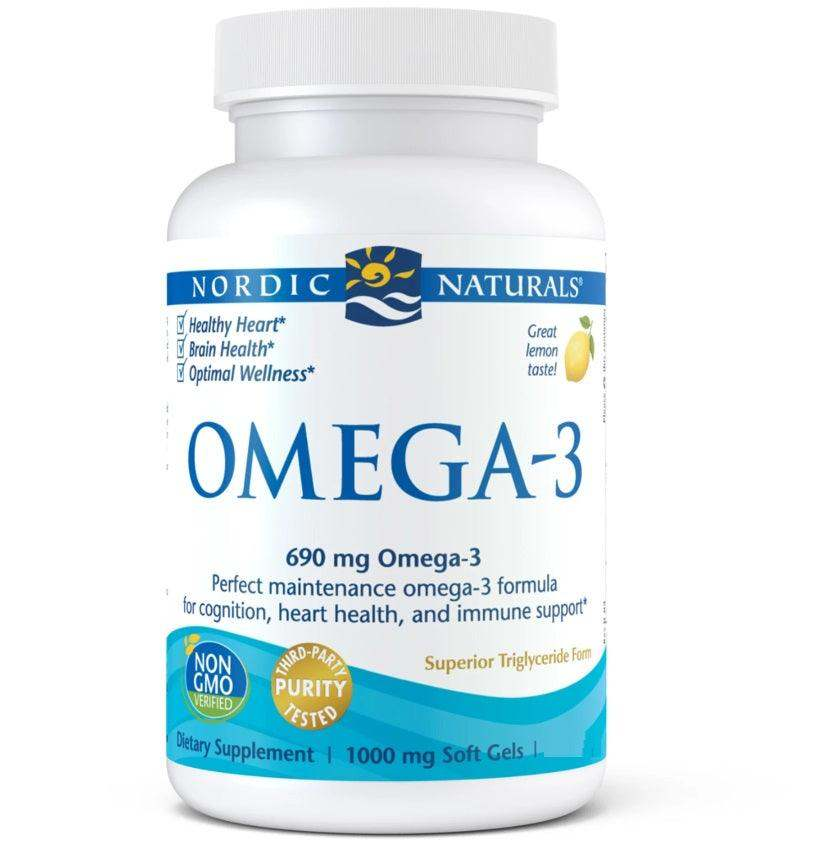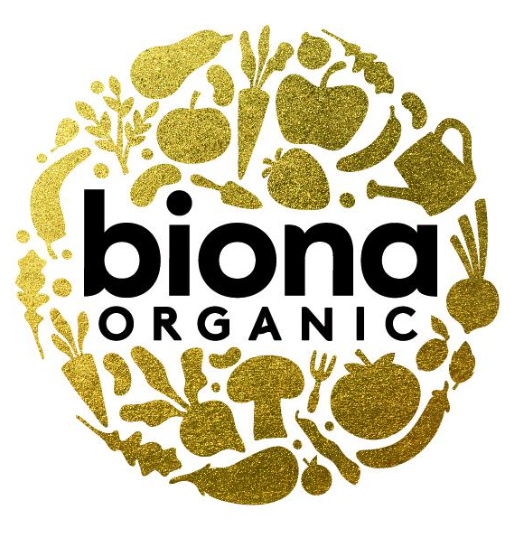
 Instagram
Instagram
Rapeseed Oil: Benefits, Risks, Uses

Related products
What is Rapeseed Oil?
The oil obtained from the seeds of the rape or rapeseed plant is known as rapeseed oil. This is the wonderfully bright yellow-flowering plant that is widely distributed throughout the British countryside in the summertime. Rapeseed oil is regarded as vegetable oil because the rapeseed plant is a member of the cabbage family and is closely related to turnips and mustard. Actually, rapeseed oil makes up the majority of oils sold as just "vegetable oil." Unsaturated fatty acids, particularly polyunsaturated fatty acids, are abundant in rapeseed oil. Moreover, it has elements like ferulic acid, glucoraphanin, carotenoids, flavonoids, squalene, vitamin E, and indole-3-carbinol.
Low in erucic acid and low in glucosinolates, canola oil is a kind of rapeseed oil. Rapeseed is an edible form of canola oil. It is possible to make polymers, hydraulic fluids, and lubricants from industrial rapeseed. The process of making biodiesel uses it. Because canola and rapeseed oils are often ingested after frying, which dramatically changes their composition, research on the possible health benefits of these oils often employs raw oils, which impairs the accuracy of findings.
This article will go over rapeseed oil, oil nutrition, possible health advantages, and possible drawbacks.
For the edible form of rapeseed oil, the words "rapeseed oil" and "canola oil" will be used interchangeably unless otherwise noted.

Rapeseed Oil vs. Canola Oil
Canola oil, one of the most popular oils in the UK, is really made from rapeseed cultivars. Using conventional cross-breeding, Canadian scientists produced a novel cultivar in 1976 that had low levels of erucic acid and glucosinolates. Rapeseed oil was not previously utilised for human consumption because of its possibly hazardous erucic acid content.
The combination of "Canada" and "oil" for the new and better oil was termed canola oil, in recognition of its biggest producer. Canola oil is required by law to have less than 2 per cent erucic acid and fewer than 30 micromoles of glucosinolates, which are naturally occurring substances that give the oil a harsh flavour.
In many nations outside of the United Kingdom and Canada, both culinary and industrial rapeseed oil is referred to by the same term," rapeseed oil."
What is the Manufacturing Process of Rapeseed Oil?
The Canola Council of Canada claims that the procedure for extracting oil from canola seed is comparable to that of other oilseeds.
Process of Cleaning
First, the canola seeds must be properly cleaned to remove any stems, pods, weed seeds, and other items left behind after harvesting.
Heating and flaking
The canola seeds are then heated and flaked by machines so that the oil is extracted. In order to keep the seed from breaking, they slightly increase the temperature in grain dryers. Afterwards, the seeds are run through rollers to break down the cell walls and flake them to the proper thickness.
Cooking
The seeds go through a sequence of heating drums or stacking cookers. This procedure breaks the cells even further and achieves the proper viscosity and moisture content needed for the following stages. Additionally, cooking keeps the food from degrading, which lowers its quality.
Pressing
After that, the heated flakes pass through a number of pressers or expellers for light pressing. This process extracts the majority of the oil, and the remaining seed is compressed into a firm cake.
Extraction
After that, an extractor uses hexane as a solvent to extract the last of the oil from the pressed cakes. The machine then recycles the hexane for later use by separating the oil and solids.
Refining and processing
Crude oil undergoes refinement processes to enhance its flavour, colour, and shelf life. Water and organic acids eliminate lipids, fatty acids, gums, and tiny food particles.
Colour pigments are removed via a method called bleaching, which doesn't involve bleach. To eliminate offensive smells, the oil is steam-distilled after being run through a clay filter.
The canola is subsequently processed into a variety of consumer goods or packaged and distributed as cooking oil by the manufacturers.
What are the Various Forms of Rapeseed Oil?
There are several varieties of culinary rapeseed oil available for purchase. A few words to be familiar with are:
Highly refinedMost of the canola and rapeseed oils have gone through a number of chemical procedures, including deodorising and bleaching. This lowers their nutritious content while raising their smoke point and making them more pleasant.
Unrefined
Although they are more difficult to find, try to find unrefined canola or rapeseed oils. Compared to refined oils, this kind has undergone far less processing
Cold-pressed
The plant's oil is derived from cold-pressed rapeseed without the use of heat. This process retains nutrients that would otherwise be lost.
A lot of vegetable oils mix rapeseed or canola with other oils like sunflower, soybean, or olive.

What is the Nutritional profile of Rapeseed Oil?
Cooking oils made from rapeseed and canola include vitamin E, phytosterols, and fatty acids. The nutritional profile of one tablespoon, or fourteen grams (g), of canola oil is shown in the following table.
Nutrient Amount per tablespoon
One of the best sources of polyunsaturated fatty acids (PUFAs) is canola oil. Of these polyunsaturated fatty acids (PUFAs), 21% are omega-6 linoleic acid, and 11% are omega-3 ALA alpha-linolenic acid (ALA). Many individuals rely on ALA sources to raise their levels of the omega-3 fats docosahexaenoic acid (DHA) and eicosapentaenoic acid (EPA), particularly when following plant-based diets. The health of the brain depends on these omega-3 fats.
It is important to remember that the body could be more effective at raising levels of these fats since it converts ALA to DHA and EPA at a low rate. ALA and other polyunsaturated fats are adversely affected by culinary techniques like frying and the heating procedure used to produce canola oil. Trans fats are also present in canola oil. The World Health Organisation (WHO) states that they are dangerous even in small doses.
What are the Benefits and Uses of Rapeseed Oil?
1. Healthy Weight
Consumption of saturated fatty acids has been connected to metabolic syndrome, obesity, and insulin resistance. According to some studies, switching from saturated to monounsaturated fats assists in regulating glycaemic management and insulin sensitivity. Diets based on canola oil have also been proven to work better than diets based on saturated fatty acids in controlling insulin and glucose levels.
Other influences on the participants ' lives have affected the findings; therefore, the relationship between canola oil and insulin and glucose levels is not definitive.
2. Decreases the Risk of Heart Disease
A comprehensive analysis of many experiments revealed a correlation between canola oil consumption and reduced levels of total cholesterol compared to the consumption of saturated fats. These trials included either the replacement of saturated fats with canola oil or comparing diets high in saturated fats with diets primarily based on canola oil. Substituting saturated fats with canola oil, particularly in meals such as mayonnaise that often contain high amounts of saturated fat, effectively lowers cholesterol levels, decreasing the likelihood of developing heart disease.
3. Loaded Fatty Acids to Improve Health
Omega-3 fatty acids are present in considerable amounts in canola oil. Increased consumption of Omega-3 fatty acids has been linked to a decreased risk of cardiovascular events, including coronary artery disease. The majority of the studies on this connection have focused on Omega-3 fatty acids produced from fish, but there is growing evidence that omega-3 fatty acids generated from plants are beneficial to health.
Linoleic acid, an Omega-6 fatty acid, and its derivatives, including y-linoleic acid, are also present in canola oil. Along with other health advantages, a diet high in y-linoleic acid has been linked to a decrease in high blood pressure and blood lipid levels.
4. High-heat cooking temperature
The high smoke point of rapeseed oil allows it to be cooked to temperatures much over 400ºF (204ºC), at which point it begins to smoke. Fat molecules start to degrade at this temperature and form toxic chemicals.
When selecting a healthy cooking oil, smoke point is a crucial consideration. The degree of refinement of an oil is one aspect that impacts this. The smoke point rises with refinement. Rapeseed oil has a higher smoke point than other oils, such as olive oil, since it is highly refined, meaning that many of its contaminants and free fatty acids have been eliminated.
Another crucial aspect to consider when selecting healthy cooking oil is its stability. Under high heat, oils with higher levels of monounsaturated or saturated fatty acids tend to be more stable than those with higher levels of polyunsaturated fatty acids. Rapeseed oil is a suitable option for high-heat cooking techniques, including baking, deep-frying, pan-frying, and sautéing, since it contains just 28% polyunsaturated fat (PUFA).
5. Contains Beneficial Bioactive Compounds
The following advantageous bioactive substances are found in rapeseed oil:
- Vitamin E: guards against cardiovascular disorders and assists in lowering the risk of degenerative illnesses that impact the muscles and brain system.1.
- Flavonoids: have anti-inflammatory and antioxidant properties.
- Carotenoids: reduce inflammation, function as antioxidants, and shield the body from UV rays harm.

6. It is flavourless and versatile.
Because of its very mild flavour, rapeseed oil is utilised in a wide range of culinary applications. It works great in dips, pan-frying, baking sauces, and deep-frying without adding any more flavour.
7. Affordable
Because rapeseed oil is produced all over the globe, it is highly accessible and economical.
A gallon (4 litres) can often be purchased for less than half the price of an equivalent amount of olive oil, depending on where one resides. Extra virgin olive oil and other higher-quality oils have a shorter shelf life and need more careful processing, which drives up their price.
8. Benefits for Skin
Rapeseed oil stands out in the skincare industry for a multitude of reasons. Because of its excellent moisturising properties, it provides a firm answer for those who want to hydrate and nourish their skin correctly. Packed with vitamin E and antioxidants, rapeseed oil provides a barrier that protects the skin from free radical damage and oxidative stress caused by the environment. Moreover, its thin texture makes it suitable for a variety of skin kinds, from dry to sensitive, making it easy to use on a wide range of skin types. Its adaptability goes beyond simple hydration to include skin and nail health support, indicating its all-encompassing use in a skincare regimen.
9. Anti-inflammatory and Antimicrobial
Recent studies have shown the anti-inflammatory and antibacterial properties of rapeseed oil, which are mainly attributed to the oil's high unsaturated fatty acid content. Its ability to fight microbial infections and provide relief from inflammatory skin disorders makes it a comprehensive option for skin care. It is a mild but effective ally in preserving the health and comfort of the skin since its use decreases oedema, redness, and irritation.

10. Rapeseed Oil for Hair
The unique makeup of rapeseed oil gives it a benefit when it comes to hair care:
It offers thorough conditioning, whether used as a hair mask or combined with other nutrient-rich oils. For maximum nutrient absorption, use 20 minutes before washing to leave hair moisturised and smooth. Because of its anti-inflammatory qualities, it helps with dermatitis and dandruff on the scalp. Its high vitamin E content also promotes normal blood flow, which energises the scalp. Rapeseed oil is a potent antioxidant that ensures resistance by acting as a barrier against environmental harm.
What are the Possible Downsides of Rapeseed Oil?
1. Genetically modified.
The majority of rapeseed oil in supermarkets is genetically engineered. Growers genetically modify plants to increase yields and lower the cost of finished goods. Genetically engineered foods have raised some concerns about antibiotic resistance, allergies, and cancer. However, the majority of studies point to the overall safety of genetically modified goods. If you want to avoid genetically modified items, purchase rapeseed oil that is labelled as GMO-free or USDA-certified organics.
2. Highly processed.
Rapeseed oil undergoes heavy processing. To "clean" the oil, hexane, a chemical solvent, is applied. Next, gums, free fatty acids, and undesirable colours are eliminated by a water-filtering procedure. While this procedure is thought to be safe, it results in decreased levels of vitamin E and fatty acids, which reduce the health advantages of rapeseed oil.
3. Not Suitable for Prolonged Heating
Canola oil's soil's unsaturated lipids make it less resilient to the high heat needed for restaurant frying, making it more challenging to maintain the quality required by the food manufacturing sector. In this respect, hydrogenating makes it more beneficial, but the process of treating oil diminishes some of its advantageous components. Heating oil improves its soil's advantageous components. Moreover, cooking meals at a high temperature produces substances that could cause cancer. Fried dishes must be avoided, and canola oil must never be reused after cooking.
4. Environmental impact
Like any other extensively cultivated crop, rapeseed oil extraction is harmful to the environment. The use of chemical fertilisers by the agriculture sector, which exacerbates the greenhouse gas impact, is mostly to blame for this. Canola oil production raises the atmosphere's concentration of carbon dioxide. It is possible to locate rapeseed oil that has been produced without the use of artificial fertilisers. According to the same research, rapeseed oil emits the fewest greenhouse gases per litre compared to sunflower and palm oils.
What are the Alternatives of Rapeseed Oil?
More studies are required before scientists declare canola oil to be safe or dangerous.
People choose other types of cooking oils in the interim, such as the following:
- Olive oil: Packed with antioxidants and anti-inflammatory qualities, this oil helps prevent heart disease and mental disorders.
- Avocado oil: Rich in carotenoids and polyphenols, these antioxidants support heart health.
- Coconut oil: It contributes to an increase in "good" or high-density lipoprotein cholesterol. However, saturated fats are also present in significant levels in coconut oil.
People Also Ask
How To Store Rapeseed or Canola Oil?Rapeseed oil must be kept out of direct sunlight and heat sources while not in use—this includes the area directly next to the stove! This helps prevent rancidity and oxidation, which cause the oil to take on unpleasant smells and flavours. For short-term storage needs, a cold, dark cabinet will do, as it provides air and light protection. However, it is best to choose an icy and dry area in the kitchen for long-term storage, mainly if it will be longer than a month. Lower temperatures aid in delaying the oxidation process and prolonging the freshness of the oil. If a person wants to shield it from light further, he could even want to move it inside a dark glass container. To reduce air exposure, always make sure the container is sealed correctly after each use. This little action helps keep the oil soil's quality even higher and prolong its shelf life.
How Long Does Rapeseed Oil Last?
-
Pantry: Unopened rapeseed oil will be kept in a pantry for about two years. If there isn’t a food pantry, store it in a closet or another dim area. Canola oil soil's shelf life is reduced to one year when it is opened and exposed to air.
-
Fridge: Although it could harden, rapeseed oil is kept in the refrigerator. This doesn't mean it's spoilt since it will melt when heated—store unopened bottles in the refrigerator for up to two years. The shelf life of opened rapeseed oil in the refrigerator is the same as that of oil stored in the pantry—one year.
-
Freezer: Rapeseed oil must not be frozen since it will harden and shorten its shelf life. It will keep its best quality for about a year if kept in the freezer.
Conclusion
The oil obtained from the seeds of the rape or rapeseed plant is known as rapeseed oil. Rapeseed oil is regarded as vegetable oil because the rapeseed plant is a member of the cabbage family and is closely related to turnips and mustard. Polyunsaturated fatty acids are abundant in rapeseed oil. Moreover, it has elements like ferulic acid, glucoraphanin, carotenoids, flavonoids, squalene, vitamin E, and indole-3-carbinol. The Canola Council of Canada claims that the procedure for extracting oil from canola seed is comparable to that of other oilseeds. The process includes cleaning, heating and flaking, cooking, pressing, extraction and lastly, refining and processing.
One of the best sources of polyunsaturated fatty acids (PUFAs) is canola oil. Of these polyunsaturated fatty acids (PUFAs), 21% are omega-6 linoleic acid, and 11% are omega-3 ALA alpha-linolenic acid (ALA). Many individuals rely on ALA sources to raise their levels of the omega-3 fats docosahexaenoic acid (DHA) and eicosapentaenoic acid (EPA), particularly when following plant-based diets. The health of the brain depends on these omega-3 fats.
According to some studies, switching from saturated to monounsaturated fats assists in regulating glycaemic management and insulin sensitivity, thereby managing the weight of an individual along with reducing the risk of cardiovascular disorders. Other benefits of rapeseed oil include the loaded fatty acids in it that improves the brain health, the bioactive compounds reduce the oxidative stress, affordability, flavourless and versatile composition, anti-inflammatory and antimicrobial constituents that improves the skin health as well.















 Rated Excellent by 14,617+ Reviews
Rated Excellent by 14,617+ Reviews